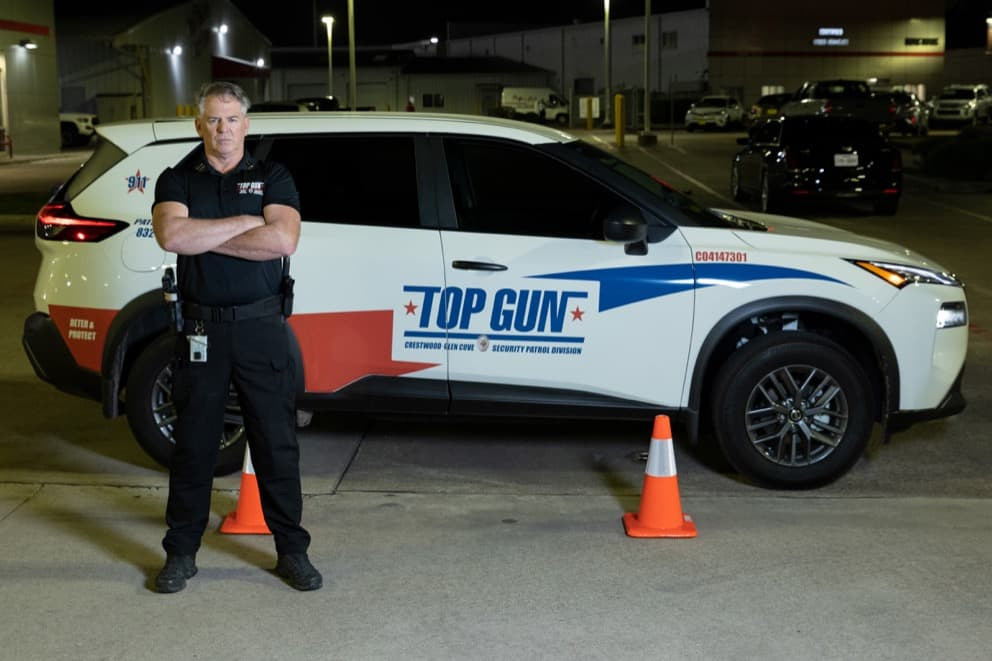
What Does an Unarmed Security Guard do?

Security guards play a pivotal role in maintaining safety and order in various environments, ranging from shopping malls to residential complexes. Within the security profession, there is a critical distinction between armed and unarmed security guards. While armed guards carry weapons and are trained to use them when necessary, unarmed security guards employ non-lethal means to protect property and people. Despite not bearing arms, unarmed guards are crucial in preventing crime, offering customer service, and managing emergencies.
Roles and Responsibilities of Unarmed Security Guards
One of the primary duties of unarmed security guards is to patrol and monitor the premises they are assigned to protect. This continuous vigilance helps in identifying potential security threats, such as unauthorized entry or suspicious activities. Through regular patrols, unarmed guards ensure that the security of buildings, assets, and people is maintained at all times.
Access Control
Unarmed security guards are often tasked with controlling access to buildings and properties. They verify the identification of individuals, ensure that only authorized personnel enter sensitive areas, and manage the flow of visitors. This role is crucial in preventing unauthorized access that could lead to theft, vandalism, or harm to occupants.
Customer Service and Assistance
In addition to their security duties, unarmed guards often serve as the first point of contact for visitors. They provide directions, answer queries, and assist individuals in navigating the premises. This dual role enhances the visitor experience, ensuring that safety protocols are seamlessly integrated with high-quality customer service.
Emergency Response
Unarmed security guards are trained to respond to various emergencies, including medical incidents, fires, and evacuations. They are equipped with the knowledge to manage crisis situations effectively until the arrival of emergency services. Their presence and quick action can significantly reduce the impact of emergencies on property and lives.
Reporting and Documentation
Detailed reporting and accurate documentation of incidents are critical responsibilities of unarmed security guards. By maintaining logs of daily activities and unusual occurrences, they provide valuable information that can be used for future security planning and investigation purposes. This meticulous documentation ensures that all security-related incidents are recorded and analyzed for continuous improvement in safety measures.
Settings Where Unarmed Security Guards Are Essential
Unarmed security guards serve a crucial role in various settings, offering protection and peace of mind without the use of weapons. Their presence is indispensable in places where the emphasis is on deterrence, observation, and reporting, rather than physical confrontation. Here are some key environments where unarmed security guards make a significant impact:
Commercial Properties
In shopping centers, malls, and office buildings, unarmed security guards ensure a safe shopping and working environment. They deter theft and vandalism, provide information to visitors, and assist in emergency situations, contributing to a secure atmosphere that encourages business activities.
Educational Institutions
Schools, colleges, and universities rely on unarmed guards to maintain a safe learning environment. They monitor campus activities, control access to buildings, and respond to incidents, ensuring students, faculty, and staff are protected.
Healthcare Facilities
Hospitals and clinics are particularly sensitive environments where security needs to balance accessibility with safety. Unarmed security guards manage access, assist patients and visitors, and help maintain order, ensuring the focus remains on patient care.
Residential Areas
In apartment complexes and gated communities, unarmed security guards enhance residents' safety and security. They control access, conduct patrols, and respond to resident concerns, creating a sense of security that makes these areas desirable places to live.
Public Events
At concerts, exhibitions, and sports events, unarmed security guards manage crowds, prevent unauthorized access, and assist in emergencies. Their presence helps ensure that events run smoothly and safely, enhancing the experience for attendees.
Training and Skills Required for Unarmed Security Guards
Becoming an effective unarmed security guard requires a combination of formal training, certification, and soft skills. Here's an overview of what is needed:
Licensing and Certification Requirements
Most jurisdictions require unarmed security guards to obtain a license or certification. This process typically involves background checks, training courses covering legal aspects, emergency response, and customer service, and passing a written examination.
Physical Fitness
While unarmed guards do not carry weapons, physical fitness is crucial for performing patrols, standing for long periods, and responding quickly in emergencies. A certain level of fitness helps guards to effectively fulfill their duties.
Communication Skills
Excellent verbal and written communication skills are essential for unarmed security guards. They must be able to clearly convey instructions, report incidents accurately, and interact professionally with people from diverse backgrounds.
Observation and Reporting Skills
Unarmed guards must be keen observers, able to notice unusual activities or changes in their environment. They must also be skilled in reporting these observations accurately and promptly, using the proper channels and documentation methods.
Customer Service Skills
Given their role as the first point of contact in many settings, unarmed security guards need strong customer service skills. Professionalism, patience, and the ability to assist and guide visitors are crucial traits that help in creating a welcoming and secure environment.
The combination of specialized training and interpersonal skills equips unarmed security guards to perform their duties effectively. Their role is vital in maintaining safety and security, demonstrating the importance of non-weaponized protection in various settings.
The Impact of Unarmed Security Guards on Safety and Security
Unarmed security guards play a critical role in maintaining a safe and secure environment across various settings. Their impact on safety and security is profound, affecting not only the direct prevention of crime but also influencing the overall atmosphere of the spaces they protect.
Deterrence of Criminal Activities
The mere presence of unarmed security guards acts as a significant deterrent to potential criminal activities. Individuals with intentions to commit theft, vandalism, or any form of disruptive behavior are often dissuaded when they see guards patrolling the area or monitoring entry points. This preventive measure is crucial in maintaining order and safety without the need for physical confrontation.
Sense of Security
Unarmed security guards provide a palpable sense of security to employees, visitors, residents, and the public. Knowing that there is a dedicated professional actively monitoring the area for any unusual activity or potential threat makes people feel more secure and comfortable. This feeling of safety can enhance productivity in workplaces, encourage more visits to public places, and increase satisfaction among residents of secured communities.
Conflict Resolution
Unarmed guards are often trained in conflict resolution techniques that enable them to handle disputes or potential altercations calmly and effectively. By intervening in the early stages of a conflict, they can prevent situations from escalating into violence. Their ability to manage conflicts through communication and negotiation, rather than through force, is an invaluable asset in maintaining peace and order.
Challenges Faced by Unarmed Security Guards
Despite their significant contributions to safety and security, unarmed security guards face unique challenges stemming from their non-weaponized role.
Dealing with Armed Threats
One of the most significant challenges is the potential risk of encountering armed individuals. Unarmed guards must rely on their training in de-escalation and communication, as well as their ability to quickly summon law enforcement, to manage these dangerous situations. Their skill in maintaining calm and control can be crucial in preventing violence until assistance arrives.
Physical Risk
Unarmed security guards often put themselves in harm's way to protect the property and people under their watch. They may be the first to respond to emergencies or confront individuals causing disturbances. The physical risks associated with these confrontations highlight the need for comprehensive training in self-defense and situational awareness.
Legal and Liability Issues
Guards without firearms must still navigate complex legal and liability issues related to their duties. They need to understand the extent of their authority, particularly concerning detainment and the use of force. Missteps can lead to legal repercussions for both the guards and their employers. Continuous training on legal aspects, along with clear protocols and guidelines, helps mitigate these risks.
Choose Top Gun Academy’s Professional Unarmed Guards
Choosing the right partner for your unarmed security guard needs means picking the best protection for your interests. That's where Top Gun Academy comes in as the stand-out leading provider of unarmed security guard services, offering unparalleled expertise and commitment to safety. Our guards are not only trained in the latest security protocols but also in customer service and emergency response, ensuring they're equipped to handle any situation with professionalism and care. Reach out to us today to enlist the best unarmed guards around.